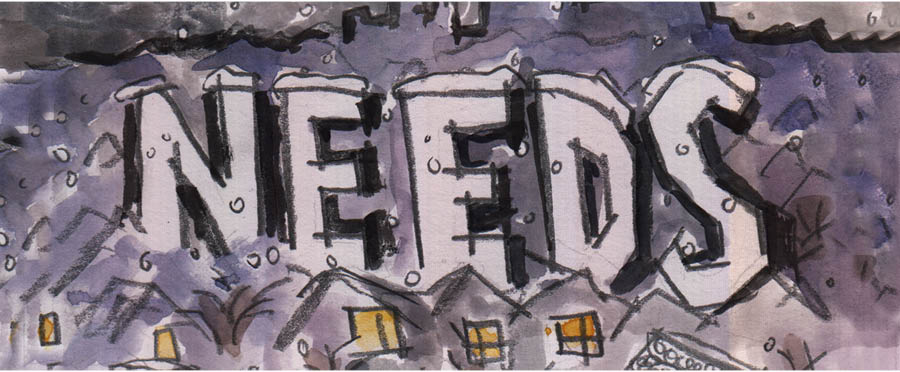Worldbuilding and the Need for Rules

“What do you mean, rules? In my space opera about wizards and flying lions?”
Yes, rules. Even in the most fantastical of adventures, you still need rules.
The Loft’s theme of Needs means that stories are a basic requirement for the human experience. But stories need different things as well. They need an ever-changing set of elements to keep us engaged throughout various contexts. So, yes. Your epic history of the feud between giant, fire-breathing mice and the Princesses of Saturn needs rules because it has to make sense to those of us who haven’t thought about the story as much as you have.
I think it’s because, in a certain way, the reader has to be able to fix the problems that you, the writer, have put before them. While you don’t want the story to be utterly predictable or easy to figure out, the reader should have all the tools to solve the mystery even if they don’t know it, and even as you intentionally mislead them by throwing all manner of obstacles in their way. Thus, at the conclusion of a story, the reader should be able to go back through the book and realize that this conclusion fits with the rest of the major plot points in the story, even if they thought something completely different was happening on their first reading.
Back to the rules of worldbuilding. If you’re creating an entirely different world for a reader to inhabit, they need to be able to ground themselves somehow in order to invest in it. Even if the story is about space wizards, it has to be clear what their magical abilities can and can’t do, which will help establish tension and conflict in the story. Additionally, in my opinion, limitations on your characters is often a good thing because it forces them to come up with more creative solutions to their problems, often revealing and developing important personality traits. Again in my opinion, this is why Superman is super boring; he’s had very few limitations imposed on him by his storytellers.
This idea of grounding the reader applies to wider plot devices or themes as well, such as politics or a simple “good versus bad.” Generally, there’s a code of ethics, government, or legal system of some kind, whether it’s a vaguely described monarchy or an intricate inter-planetary republic. The characters in the story need to operate clearly within that structure, or if they choose to act outside it, they do so intentionally and in spite of specific consequences.
One of the reasons we need these rules for worldbuilding is because of the plot device known as Deus Ex Machina, in which a seemingly insurmountable obstacle is fixed out of nowhere. At this point, the reader is usually yanked out of the story in confusion, which is not usually what the writer wants. Some people look at the way the Eagles rescue Frodo and Sam at the very end of Return of the King in this way (Why didn’t they take the ring to Mordor in the first place?), because though Tolkien gives ample reasons for the Eagles acting the way they do, it’s not made clear in the films. I personally felt like the last episode of Buffy the Vampire Slayer fell into this category, as well as how the Wicked Witch of the West dies when you dump a bucket of water on her head in The Wizard of Oz. If that’s all it takes, why the heck is everyone so scared of her? Why didn’t anyone try that before? I know it’s a children’s book, but still. This plot device is so frustrating because the reader has invested a lot of time and emotional energy in a story that then feels wasted. The reader is left with an unsatisfying ending that breaks all the rules of the world, and in some ways negates the stakes of the action. You’re left with a feeling of, “Well, that wasn’t so hard,” which shouldn’t seem accurate after the climax of a story.
The problem with writing this essay is that it sounds like a list of things that every writer has to include in their story, which is not the case. Not everyone needs to or should write the same kind of story. No one will ever be able to be the exact authority on “Rules For Writing.” It’s more about understanding the need to make up your own rules for the world you’re populating, that while it can be more fun or exciting to make up individual fantastical elements, it’s equally important to create the structural basis that keeps all those elements in place. The good news is, you get to create that structure yourself just like the rest of it.
Like any rule when it comes to writing, these are not absolute. They’re quite breakable, in fact. But like any writing rule, you need to know how to use them before you can break them effectively.
Originally from Minnesota, Ellen Ray recently graduated from Boston College with a degree in English concentrating in creative writing. Amidst four years of writing workshops and analyzing independent films, she spent a semester wandering around New Zealand, including a night spent in a cave with local penguins. She has written for The Laughing Medusa, an all-female literary journal, as well as various nonprofit organizations. After various internships and an attempt at freelance writing, she found herself the Communications and Marketing intern at The Loft.
